People of all ages are in a constant search of the best skin care products. As argued by Desmond Morris, a zoologist, flawless skin is the “most universally desired human feature” (Rodan et al., 2016, p.3). The ultimate beauty goal is to have radiant skin characterized by a smooth texture and tone. To this end, a range of products, including moisturizers, exist to supply the skin with the said benefits. This blogpost analyzes the efficacy of facial moisturizers in hydrating the skin to ascertain the most effective ones.
Current State of the Skin Care Industry: The Paradox
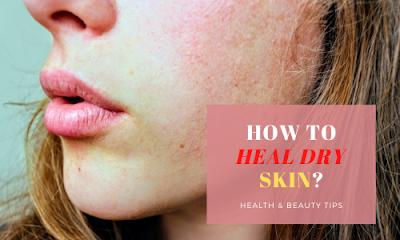
Marketers discovered years ago that science could serve as a crucial promotional approach for beauty products; therefore, they have capitalized on labels and advertisements that use scientific terms to boost sales. For example, companies use the phrase non-comedogenic, to indicate that their products do not cause pimples. Almost all moisturizers in the market use non-comedogenic ingredients in their products (Rodan et al., 2016). Although the authors do not indicate whether using non-comedogenic products is a standard U.S. Food and Drug Administration (FDA) requirement, it is clear that there is nothing unique about these products.
The Problem with the Skincare Industry
Many consumers believe that these cosmetics can enhance their sexual attractiveness. Moreover, the cosmetic industry has capitalized on consumers’ need to feel attractive to generate profits through increased sales. While there is nothing wrong with pursuing glamour, I find the industry’s deceptive and manipulative approach immoral. Many salespersons market their products based on the notion that its contents have the capacity to help consumers attain the desired facial contrast. As a result, many clients have fallen victim to this pseudoscientific hokum thinking that the product will resolve their skincare needs. As mentioned earlier, most of these skin care products do not deliver their intended benefits. Yet, customers move from drug stores to drug stores, spending significant resources on ineffective commodities. Given the typical ineffectiveness of these cosmetic products, one is likely to questions whether consumers need them in the first place. Selling or receiving money for commodities that do little or nothing to change a person’s life is immoral and unethical.
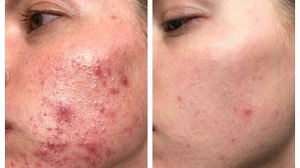
What I find even more appalling is that these products harm consumers. The review conducted by Ben-Nun (2016) revealed that skincare products cause 56.3% of the adverse effects triggered by cosmetic products (p.80). The commonly-reported adverse effects include breakouts, exacerbation of skin condition, irritation, burning, and peeling (Rodan et al., 2016). A story that stands out is that of St. Ives, a renowned company in the skincare industry; it was sued for $5 million for selling a facial scrub that harmed their customers (Nielsen, 2016). The complainants claimed that the product “tore away” their skin.
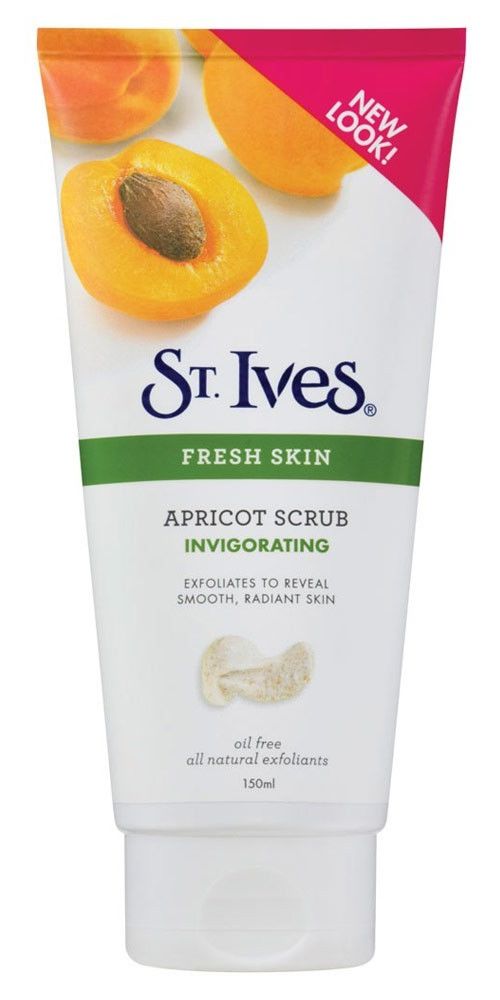
While this is a rare but actual occurrence, it shows how far-reaching the unregulated skincare industry’s effects are. It is worthwhile to mention that the beauty industry is largely unregulated. The FDA does not approve the ingredients and products used in cosmetic products. Therefore, companies can use any term they wish as long as it drives sales.
The Solution
I agree with the current arguments supporting the significance of skin moisturization. These products preserve the skin’s natural state by preventing transepidermal water loss (TEWL). They improve skin hydration, prevent dryness and ruggedness, and treat dry skin conditions such as atopic dermatitis, psoriasis, ichthyosis, and seborrheic dermatitis (Sethi et al., 2016). Given that moisturizers’ benefits have been scientifically established, consumers need to select the right products to achieve these benefits.
There are four moisturizer ingredient classes: humectants, emollients, occlusive, and protein rejuvenators. Humectants draw water from the air and deeper skin layers into the stratum corneum (SC).
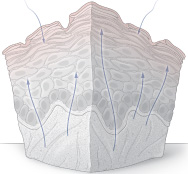
However, due to humidity variations within the living environment, most of the water drawn from one’s skin comes from inside the body. Since the SC doesn’t hold water, humectants, including glycerin, honey, alpha hydroxyl acid, are always used with an occlusive. Sethi et al. (2016) identify occlusives as oily substances that form an inert layer that prevents TEWL; they include vaseline, zinc oxide, and lanolin. A 2019 review by Harvard Health Publishing states that “if greasiness weren’t a problem, we might all go back to using the ultimate solution for dry skin… – Vaseline” (“Moisturizers,” 2019, para. 4).
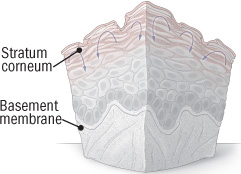
Emollients and protein rejuvenators present in moisturizers do not moisturize; instead, they supply the skin with ingredients that make it feel smooth and rejuvenated, respectively. Emollients are primarily alcohols, while protein rejuvenators are keratin and collagen. Therefore, consumers should always look at the ingredient list to determine the moisturizers’ efficacy. This table provides in-depth information on moisturizer classes (Sethi et al., 2016). It provides examples in each category, and the adverse effects of each moisturize class.
Conclusion
A moisturizer needs to contain only two ingredients: a humectant and an occlusive. The humectant supplies the skin with water while the occlusive prevents that water from evaporating or escaping the skin. Other ingredients in moisturizers do not moisturize but provide additional benefits to the skin. Given that most of the water in the skin is drawn from the body, consumers should always drink a lot of water to stay hydrated. The government should initiate strategies that aim to regulate the industry by establishing stringent labeling requirements to allow consumers to make informed decisions. An effective moisturizer must contain at least one humectant and occlusive within the recommended quantity to be effective.
References
Ben-Nun, L. (2016). Medical effects of cosmetics (1st ed.). BN Publishing.
Brickell, S. (2019). The exact skincare products that helped clear this woman’s cystic acne in just 3 months. Health. Web.
How to heal dry skin: Smeh Beauty tips (2018). Health & Beauty Tips. Web.
Moisturizers: Do they work? (2019). Harvard Health Publishing. Web.
Nielsen, S. R. (2016). 4 beauty products so bad, people sued. Houstonia Magazine. Web.
Rodan, K., Fields, K., Majewski, G., & Falla, T. (2016). Skincare bootcamp. Plastic and Reconstructive Surgery – Global Open, 4(12S), 1–6. Web.
Sethi, A., Kaur, T., Malhotra, S., & Gambhir, M. (2016). Moisturizers: The slippery road. Indian Journal of Dermatology, 61(3), 279–287. Web.